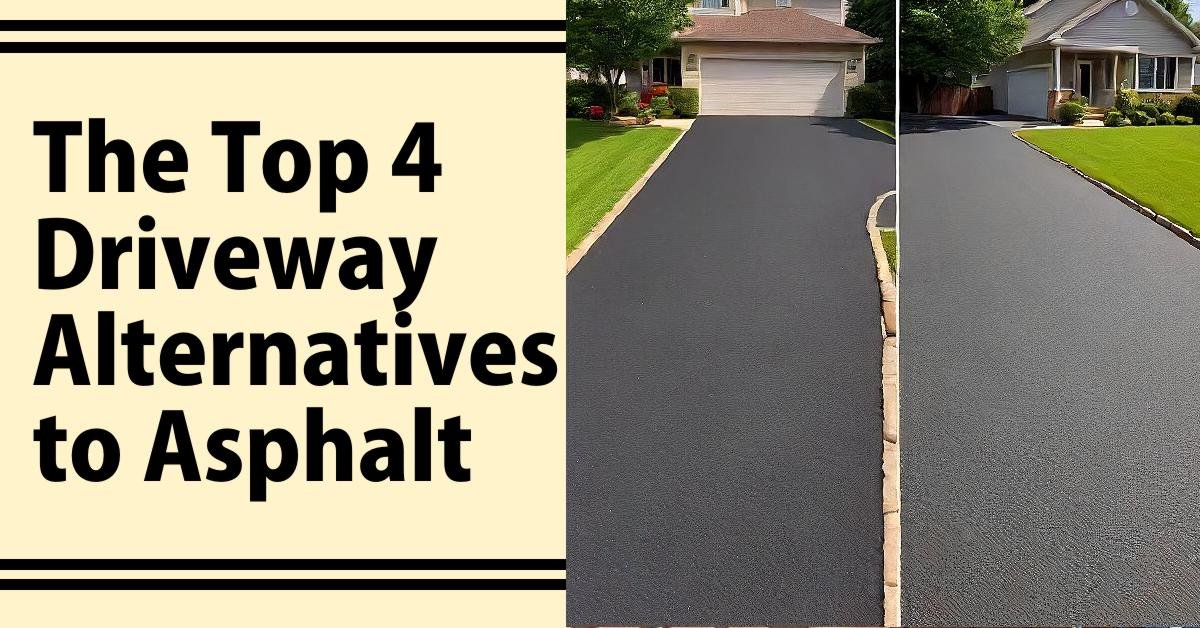When considering driveway alternatives to asphalt, it’s essential to evaluate both the cost and durability of different materials.
Concrete As a Driveway Alternatives to Asphalt
Concrete is a popular option due to its strength and the ability to be customized through stamping, stenciling, and staining. However, it can crack under extreme temperature changes, necessitating frequent repairs.
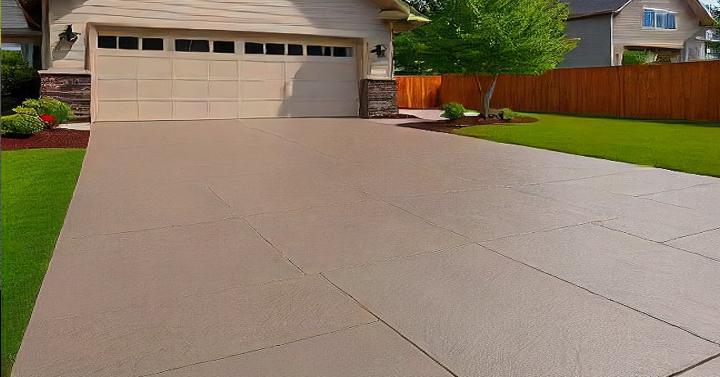
Gravel As A Driveway Alternatives to Asphalt
For a more cost-effective solution, gravel driveways are significantly cheaper to install and allow for effective drainage due to the use of angular gravel. The downside is the need for regular raking to maintain the surface, especially on sloped driveways.
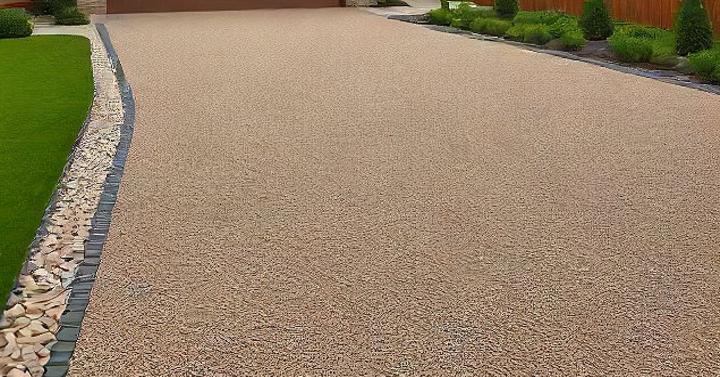
Brick Driveway Alternatives to Asphalt
Another viable alternative is brick, which not only offers aesthetic appeal but also enhances water drainage. Despite its expensive installation process and the need for regular maintenance, a brick driveway construction adds significant value and character to your home.
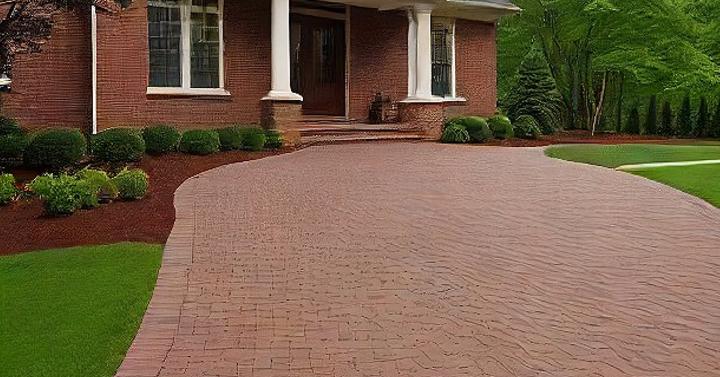
Tar and Chip As Driveway Alternatives to Asphalt
A lesser-known option is tar-and-chip, which mimics the look of asphalt but involves a different installation process combining gravel and hot liquid bitumen asphalt. This method is relatively affordable and can be applied over an existing surface in good condition, although it has a shorter lifespan.
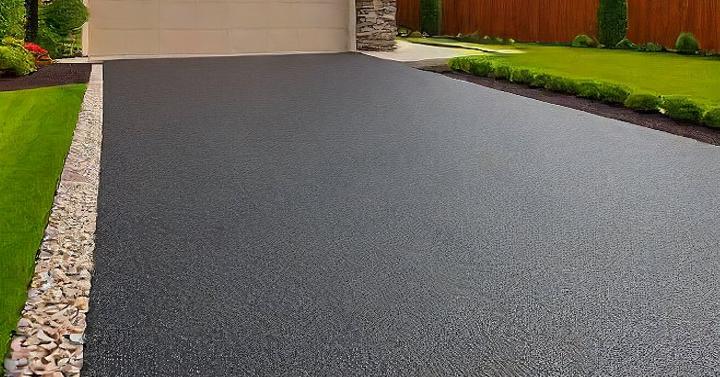
Cobblestone As Driveway Alternatives to Asphalt
Lastly, cobblestone driveways are an incredibly durable choice, requiring minimal maintenance and offering extensive customization options due to the variety of sizes and shapes available. While the initial cost is high and installation labor-intensive, the longevity of cobblestone makes it a worthy investment.
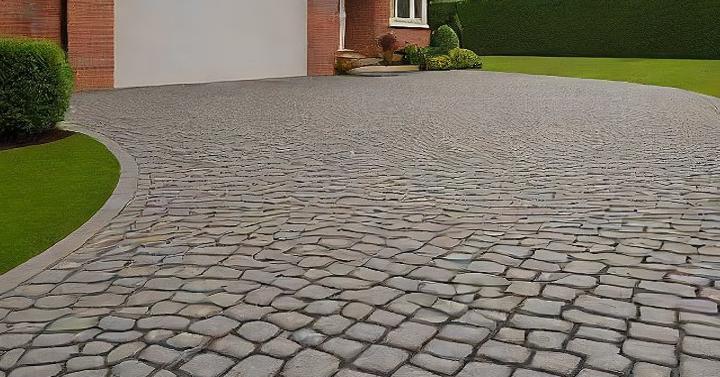
Perfect driveways require proper planning. Here are some important comparison tables that were created by Engineer Cameron Thomas, Chief, the Institute for Systems Engineering Research Branch
Cost Comparison of Driveway Materials:
| Driveway Material | Cost Range (per square foot) | Additional Notes |
|---|---|---|
| Asphalt | $4 – $10 | |
| Concrete | $6 – $15 | Depends on customization options |
| Brick | $10 – $30 | Higher costs due to material and labor |
| Gravel | $2 – $5 | Low-cost option, but requires regular maintenance |
| Tar-and-Chip | $4 – $8 | Affordable alternative with customization options |
| Cobblestone | $20 – $50 | High initial cost but low maintenance |
Durability Comparison:
| Driveway Material | Durability | Maintenance Requirements |
|---|---|---|
| Asphalt | Medium | Regular sealing and crack filling |
| Concrete | High | Occasional sealing, prone to cracking |
| Brick | Medium | Regular maintenance, grass/weed removal, sealing |
| Gravel | Low | Regular raking and repositioning |
| Tar-and-Chip | Medium | Limited lifespan, may require re-application |
| Cobblestone | High | Minimal maintenance required |
Aesthetic Appeal:
| Driveway Material | Aesthetic Appeal |
|---|---|
| Asphalt | Neutral, utilitarian |
| Concrete | Versatile, customizable |
| Brick | Rustic, classic |
| Gravel | Natural, informal |
| Tar-and-Chip | Similar to asphalt with customizable stone colors |
| Cobblestone | Elegant, timeless |
Environmental Impact:
| Driveway Material | Environmental Impact |
|---|---|
| Asphalt | Petroleum-based, non-permeable surface |
| Concrete | High carbon footprint, non-permeable surface |
| Brick | Natural material, permeable surface |
| Gravel | Natural material, permeable surface |
| Tar-and-Chip | Moderate environmental impact, permeable surface |
| Cobblestone | Natural material, permeable surface |
The alternatives to asphalt to consider for your driveway, including gravel, cobblestone, and concrete. If you want durability for a long period, something very beautiful and not expensive it is best to use gravel instead of other materials. The cost, strength, beauty, and environmental effects are the main things that one must look into before settling on any material as an alternative.
This will guarantee that whatever choice they make about their driveways will be based on what they need rather than what they want. The result will be a decision that will yield the most durable as well as attractive appearance for the property’s driveway while costing them less cash in terms of initial costs or terms of maintenance expenses in future years.
